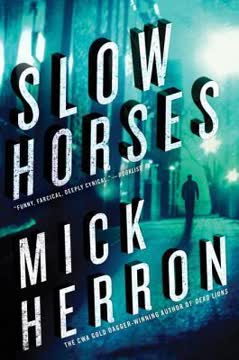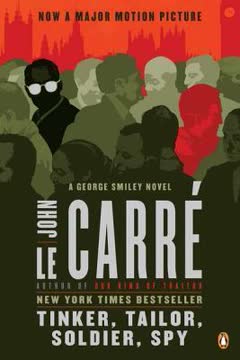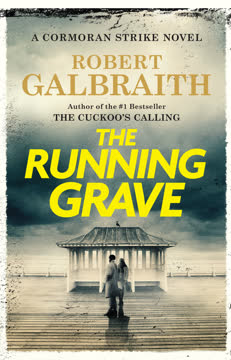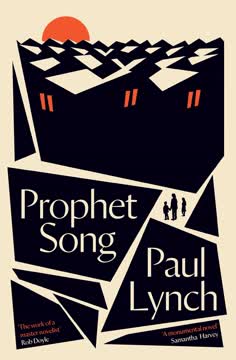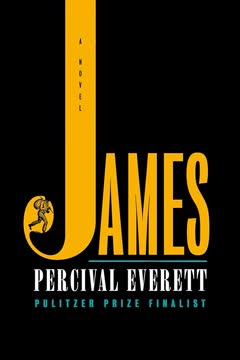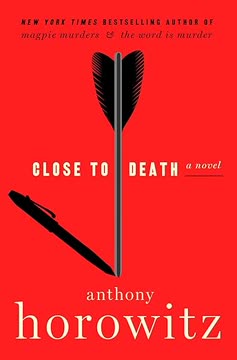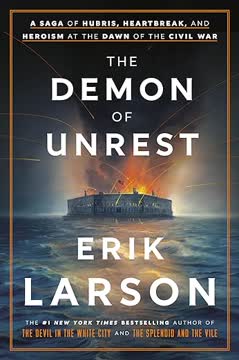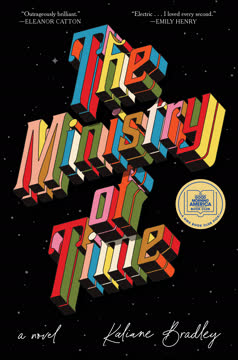Plot Summary
King's Cross Catastrophe
River Cartwright, a promising MI5 agent, is thrust into chaos during a simulated terrorist attack at King's Cross Station. A miscommunication about the suspect's clothing leads to a disastrous public evacuation and a simulated "detonation" that, in the real world, would have killed or maimed over a hundred people. Though no one is actually hurt, the incident is a public embarrassment and a career-ending blunder. River's mistake is not entirely his own, but the blame falls squarely on him. The event marks the abrupt end of his fast-track career and sets the tone for the novel's exploration of failure, scapegoating, and the unforgiving nature of the intelligence world.
Slough House Exile
Slough House is a grim, forgotten outpost of MI5, where agents who have made career-ending mistakes are sent to rot. The building is decrepit, the work is mind-numbing, and the staff are a collection of misfits, addicts, and burnouts. River Cartwright, now one of these "slow horses," is joined by others whose errors have doomed them to bureaucratic purgatory. Their boss, Jackson Lamb, is a slovenly, sharp-tongued legend with a mysterious past. The atmosphere is one of resignation, bitterness, and the faint hope of redemption, as each agent struggles with the reality of their exile.
Gathering the Slow Horses
The narrative introduces the other slow horses: Catherine Standish, a recovering alcoholic and former secretary to a legendary MI5 chief; Min Harper, who lost a classified disk; Louisa Guy, whose surveillance target slipped away; Roderick Ho, a socially inept tech whiz; Jed Moody, a disgraced former internal security "Dog"; and Sid Baker, the newest and most enigmatic member. Each has a secret or a shame, and their relationships are fraught with suspicion, rivalry, and the shared pain of professional disgrace. The group's dynamic is tense, but beneath the surface, a sense of camaraderie begins to form.
Rubbish, Routines, and Regrets
River is assigned to sift through the rubbish of Robert Hobden, a disgraced journalist with far-right connections. The task is humiliating and seemingly pointless, emblematic of the busywork that defines life at Slough House. Meanwhile, Sid Baker is running her own operation, using sleight of hand to steal files from Hobden's memory stick. The slow horses' daily routines are a mix of boredom, resentment, and the faint hope that something meaningful might emerge from the drudgery. Regret and self-doubt haunt them all, as they wonder if they will ever escape their professional limbo.
Sid's Sleight of Hand
Sid successfully lifts Hobden's memory stick, copies its contents, and returns it without detection. The files, however, appear to be nothing but endless digits of pi—a decoy. The operation, orchestrated by Jackson Lamb at the behest of MI5's Second Desk, Diana Taverner, is revealed to be a test or a distraction. River, feeling sidelined and resentful, takes a risk by opening a flash-box meant for Regent's Park, burning his hand in the process. The slow horses are pawns in a larger game, their actions manipulated by unseen hands, and their trust in each other and their superiors is further eroded.
The Hostage Video Emerges
The world is rocked by the appearance of a live-streamed video: a young man, hooded and dressed in an orange jumpsuit, is held hostage in a dingy cellar. The kidnappers, calling themselves the Voice of Albion, threaten to behead him in forty-eight hours. The video is cryptic, with no clear demands or explanation. The slow horses, like the rest of the country, are transfixed and horrified. The event galvanizes the intelligence community, and the slow horses sense that, for the first time in ages, something real and urgent is happening—though they are officially sidelined.
Blame, Banishment, and Backstories
The narrative delves into the backstories of the slow horses, revealing the personal and professional failures that led to their exile. Catherine's alcoholism and the suicide of her boss, Min's lost disk, Louisa's botched surveillance, Ho's social ineptitude, and Moody's disgrace as a Dog all come to the fore. River's own sense of injustice and his relationship with his grandfather, a legendary spook, are explored. The slow horses' banishment is both a punishment and a means for MI5 to quietly dispose of its embarrassments, and each character's struggle with shame and hope is laid bare.
The Voice of Albion
As the investigation into the hostage crisis intensifies, suspicion falls on far-right groups, particularly the Voice of Albion. The group is small, amateurish, and recently formed, but their actions have catapulted them into national infamy. MI5's leadership, especially Diana Taverner, sees an opportunity to turn the crisis to their advantage—both to rehabilitate the Service's reputation and to curry favor with powerful international allies. The slow horses, meanwhile, begin to suspect that the official narrative is not the whole truth, and that they are being set up as scapegoats.
The Kidnapping Unmasked
It becomes clear that the hostage, Hassan Ahmed, is not a random victim but the nephew of a high-ranking Pakistani intelligence official. The kidnapping, initially thought to be the work of Islamist terrorists, is actually a false-flag operation orchestrated by MI5 to discredit the far right and win political capital. Alan Black, a former slow horse, is the undercover agent embedded with the kidnappers. The operation spirals out of control when Black is discovered and killed, and the remaining kidnappers, now leaderless and panicked, become truly dangerous.
Night of Violence
As the slow horses investigate on their own, violence erupts. Sid is shot and gravely wounded during a confrontation at Hobden's flat. Moody, attempting to clean up evidence of his own involvement, is killed in a struggle with Min and Louisa. The slow horses are forced to go on the run, pursued by both the police and their own agency. The boundaries between friend and foe blur, and the slow horses must rely on each other's flawed skills and battered trust to survive the night.
Taverner's Game
Diana Taverner moves to contain the fallout, manipulating evidence and witnesses to frame Slough House for the failed operation. She pressures Loy and White into signing statements that implicate Lamb and his team. Lamb, however, is not so easily outmaneuvered. He confronts Taverner with evidence of her involvement and threatens to expose her if she does not back down. The slow horses, meanwhile, race against time to find Hassan before the kidnappers carry out their threat.
The Slow Horses Strike Back
Using their combined skills—Ho's hacking, Catherine's tradecraft, Louisa and Min's fieldwork, and River's determination—the slow horses trace the kidnappers to Epping Forest. They alert the police and set out to rescue Hassan themselves, knowing that no one else will act in time. The team's transformation from disgraced misfits to a functioning unit is hard-won and fragile, but in this moment, they find purpose and redemption in the fight to save an innocent life.
Epping Forest Showdown
In the misty, labyrinthine woods of Epping Forest, the final confrontation unfolds. Hassan, battered but defiant, manages to escape his captors and turns the tables on Curly, the most violent of the kidnappers. The slow horses and the police arrive in time to prevent further bloodshed. Hassan survives, traumatized but alive, and the would-be executioners are arrested. The slow horses, though still officially disgraced, have saved the day—though their heroism will never be publicly acknowledged.
Aftermath and Reckoning
In the aftermath, MI5 moves quickly to cover up the true nature of the operation. Taverner and Lamb reach an uneasy truce, each holding damaging secrets over the other. The deaths of Sid and Moody are quietly erased from the record, and the slow horses are returned to their exile, their actions unrecognized. River confronts the reality that justice and truth are malleable in the world of espionage, and that survival often depends on playing by "London rules"—protecting oneself at all costs.
The Cost of Loyalty
The slow horses reflect on the personal costs of their loyalty—to each other, to the Service, and to their own battered ideals. Catherine's past with Charles Partner, Lamb's hidden role in his death, and River's relationship with his grandfather all underscore the complex web of debts and betrayals that define their world. The price of doing the right thing is high, and the rewards are fleeting, but for a brief moment, the slow horses have reclaimed a measure of dignity.
London Rules
The novel's title phrase—"London rules"—comes to the fore: in the world of British intelligence, the only rule is to make sure someone else takes the fall. Lamb, ever the survivor, ensures that Slough House is protected, even as he manipulates events to his own advantage. Taverner, too, survives by shifting blame and rewriting history. The slow horses, battered but unbroken, return to their routines, knowing that the game is never fair, but still worth playing.
The Kingdom of Slough House
Life at Slough House resumes, changed but fundamentally the same. The survivors—River, Louisa, Min, Ho, and Catherine—settle back into their roles, their bonds strengthened by shared ordeal. The building remains a place of exile, but also of resilience and dark humor. Lamb, still king of his little kingdom, contemplates the future with a mixture of cynicism and pride. The slow horses may be outcasts, but they are also a family of sorts, bound by failure and the refusal to give up.
Endings and Beginnings
As the dust settles, the slow horses look to the future. Some, like River, find hope in small acts of defiance or connection; others, like Lamb, remain wary and watchful. The world outside Slough House continues to turn, indifferent to their struggles, but the slow horses have proven that even the most broken agents can make a difference. The story ends with a sense of uneasy peace, the promise of further challenges, and the knowledge that, in the shadows of the intelligence world, nothing is ever truly over.
Characters
Jackson Lamb
Lamb is the head of Slough House, a legendary field agent turned slovenly, abrasive manager. He is both feared and resented by his team, but beneath his grotesque exterior lies a razor-sharp mind and a deep, if hidden, sense of loyalty. Lamb's past is shrouded in mystery, including his role in the death of his friend and former boss, Charles Partner. He manipulates both his own team and his superiors, playing a long game of survival and subtle resistance. Lamb's psychological complexity—his self-loathing, his protective instincts, and his mastery of "London rules"—make him the dark heart of the novel.
River Cartwright
River is the novel's protagonist, a young, talented agent whose career is derailed by a disastrous training exercise. Haunted by the sense of injustice and his grandfather's legacy, River is driven by a need to prove himself. His journey is one of disillusionment and reluctant acceptance of the moral ambiguities of espionage. River's relationships—with Sid, with Lamb, and with his fellow slow horses—are marked by mistrust, longing, and the hope for a second chance. He is both the most "normal" and the most haunted of the slow horses.
Catherine Standish
Catherine is a recovering alcoholic and the former secretary to Charles Partner, whose suicide and betrayal left deep scars. She is meticulous, self-effacing, and often overlooked, but possesses a quiet strength and a deep well of experience. Catherine's struggle with addiction and her loyalty to her colleagues make her the emotional anchor of Slough House. Her relationship with Lamb is complex, marked by mutual respect and unspoken guilt. Catherine's journey is one of reclaiming agency and dignity in a world that has repeatedly discarded her.
Sidonie "Sid" Baker
Sid is the newest member of Slough House, and her reasons for exile are unclear. She is resourceful, quick-witted, and more capable than she lets on. Sid's covert operation against Hobden and her growing connection with River hint at a deeper agenda. Her shooting and subsequent disappearance are both a catalyst for the plot and a symbol of the expendability of agents in the intelligence world. Sid's fate is left ambiguous, underscoring the novel's themes of loss and erasure.
Min Harper
Min is a former agent whose career ended when he lost a classified disk on public transport. He is plagued by self-doubt and a sense of failure, both as a father and as a spy. Min's relationship with Louisa offers a glimmer of hope and connection, but his actions are often driven by fear and the desire to atone for past mistakes. Min's arc is one of tentative growth, as he learns to trust himself and his colleagues again.
Louisa Guy
Louisa is a surveillance specialist whose career was derailed by a botched operation. She is tough, intelligent, and fiercely independent, but struggles with loneliness and the sense of being undervalued. Louisa's partnership with Min and her role in the rescue of Hassan reveal her capacity for loyalty and courage. Her psychological depth lies in her ability to endure disappointment without succumbing to bitterness.
Roderick Ho
Ho is the technical expert of Slough House, a self-absorbed and abrasive figure who is both indispensable and insufferable. His lack of social skills masks a deep insecurity, and his obsession with secrets and systems is both a strength and a weakness. Ho's arc is one of reluctant integration into the team, as he learns that even the most isolated outcast can play a vital role.
Jed Moody
Moody is a former internal security "Dog" whose career ended in disgrace. He is aggressive, resentful, and desperate to reclaim his lost status. Moody's actions—planting a bug, attempting to clean up evidence, and ultimately dying in a struggle with his colleagues—embody the dangers of unchecked ambition and the corrosive effects of exile. His death is both a tragedy and a warning.
Diana Taverner
Taverner is the power behind the throne at MI5, a master manipulator who uses the slow horses as pawns in her own schemes. She is brilliant, calculating, and willing to sacrifice anyone to protect the Service and her own position. Taverner's psychological complexity lies in her ability to justify any action as necessary for the greater good, even as she destroys lives and careers. Her rivalry with Lamb is a central dynamic of the novel.
Hassan Ahmed
Hassan is a university student and aspiring comedian, kidnapped for political purposes. His ordeal is both a personal nightmare and a commentary on the expendability of individuals in the games of power. Hassan's resilience, wit, and ultimate survival are a testament to the human spirit, even as he is used and discarded by forces beyond his control.
Plot Devices
Exile as Purgatory
The central device of the novel is the use of Slough House as a purgatory for failed agents—a place where careers go to die, but where hope and agency stubbornly persist. This setting allows for a deep exploration of failure, shame, and the possibility of redemption. The slow horses' exile is both a punishment and a crucible, forcing them to confront their own weaknesses and, ultimately, to reclaim their worth.
False Flags and Misdirection
The plot is driven by layers of deception: the hostage crisis is a false-flag operation, the slow horses are manipulated as scapegoats, and even the files they steal are decoys. Foreshadowing and red herrings abound, keeping both characters and readers off-balance. The narrative structure mirrors the confusion and duplicity of the intelligence world, where nothing is as it seems and trust is a rare commodity.
Character-Driven Suspense
The novel's suspense arises not just from the external threat of the hostage crisis, but from the internal struggles of the characters. Each slow horse's backstory is revealed through flashbacks and psychological insight, creating a tapestry of regret, longing, and resilience. The interplay of personal and professional stakes gives the story its emotional depth and narrative drive.
Satire and Dark Humor
Herron uses satire to lampoon the bureaucracy, pettiness, and self-preservation instincts of the intelligence community. The novel is laced with dark humor, from Lamb's grotesque habits to the slow horses' banter. This tone both undercuts and intensifies the novel's darker themes, highlighting the absurdity of a world where failure is punished more harshly than malice.
Moral Ambiguity
The novel eschews clear-cut heroes and villains, instead presenting a world where everyone is compromised and survival often requires moral compromise. The slow horses' actions are driven by a mix of self-interest, loyalty, and desperation, and even their moments of heroism are tinged with ambiguity. The plot's resolution is similarly equivocal: justice is partial, truth is buried, and the cycle of blame and exile continues.
Analysis
"Slow Horses" is a masterful deconstruction of the spy thriller, blending sharp satire with genuine emotional depth. Mick Herron's vision of British intelligence is one of bureaucratic decay, where failure is punished with exile and the machinery of the state is more concerned with self-preservation than justice. The novel's central metaphor—Slough House as a dumping ground for the Service's embarrassments—serves as a powerful commentary on the ways institutions discard those who no longer serve their needs. Yet, within this bleak landscape, Herron finds room for hope, resilience, and even redemption. The slow horses, for all their flaws, prove that dignity and courage can survive even in the most inhospitable environments. The novel's moral ambiguity, dark humor, and focus on character over spectacle mark it as a standout in the genre, offering both a thrilling narrative and a profound meditation on failure, loyalty, and the cost of survival in a world that values appearances over truth. In the end, "Slow Horses" is less about espionage than about endurance—the stubborn refusal to give up, even when the world has written you off.
Last updated:
Review Summary
Slow Horses receives mostly positive reviews, praised for its clever writing, dark humor, and complex characters. Readers appreciate the unique premise of disgraced spies and the compelling plot. Many compare it favorably to John le Carré's works. The character of Jackson Lamb is particularly well-received. Some criticize the pacing and numerous character introductions, but overall, readers find it an engaging start to the series. Many express eagerness to continue with subsequent books.
Slough House Series
Similar Books
Download PDF
Download EPUB
.epub digital book format is ideal for reading ebooks on phones, tablets, and e-readers.
